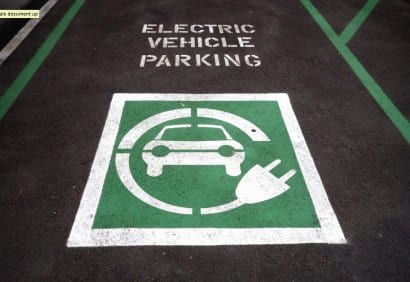

Adelaide could soon boast Australia’s highest concentration of electric vehicle charging infrastructure, after the launch of a new sustainability initiative that will see at least 40 electric vehicle charging stations installed throughout the city, including 10 charging points in the Adelaide Central Market UPark by the end of 2017.
The latest Adelaide City Council’s Sustainability Incentives Scheme, unveiled on Sunday, will also provide generous incentives for the installation of private electric vehicle charging infrastructure, with up to $5,000 on offer for each EV charging point, and up to $250 for each electric bicycle point.


Already, Adelaide Council has had four electric vehicle charging points in two of its UPark car parking facilities, which have been providing free EV charging since 2010.
The 10 new charging stations at the Central Market Upark will provide free charging for permanent reserved and casual parkers until at least 2020 and possibly 2025, when it is expected that EVs will be much more common on Australian roads.
The new charging points will also incorporate a smart green parking system that will monitor and match EV parking demand during peak periods, so that the rollout of EV charging points can be achieved without reducing total parking space availability for other vehicles.
The move, which is another step on the path to making Adelaide one of the world’s first carbon neutral cities, has been welcomed by car makers and by the Australian Electric Vehicles Association (AEVA), as a boost to EV uptake in Australia, which has been slow compared to other parts of the world.
“The perception of anxiety about the range of electric vehicles is a huge barrier for many, and is the most common question asked about owning an electric vehicle,” said AEVA’s South Australian branch chairperson, Paul Koch.
“This number of charging stations spread across the city will work at removing this barrier. Our Association strongly supports initiatives like this which will increase the uptake of electric vehicles, and create a more sustainable future. It’s just fantastic.”
Heath Walker from EV maker Tesla said the incentive was a continuation of Adelaide’s continued national leadership with incentives for residential battery storage systems, including Tesla’s Powerwall.
“This important initiative will assist city businesses, hotels and public car parks to bring forward the installation of Tesla destination chargers,” he said.
Mitsubishi Motors also offered its support to the scheme.
“We are proud to offer our support to Adelaide City Council and are looking forward to working with them and their partners to increase the uptake of low emission and no emission vehicles and sustainable transport within South Australia,” said Mitsubishi national PHEV sales manager Craig Norris.
Adelaide Lord Mayor Martin Haese said encouraging an accelerated uptake of electric vehicles was one of the Council’s “priority actions” in its efforts to cut the City’s carbon emissions, 35 per cent of which come from transport.
“Carbon Neutral Adelaide informs everything Council is doing right now – from asset renewal, to our
procurement and waste management,” Haese said.
“Global manufacturers are redesigning their vehicle fleets for an autonomous and electric future and the city is preparing for this reality. It’s about making changes that encourage the take-up of new technology that will decarbonise transport.
“I’m extremely enthusiastic about the benefits that electric vehicles will bring to the city. They are quieter, cheaper to run, and better for the environment.
“History shows that those who act first globally and embrace new ideas or technologies will reap the economic rewards. This is a once in a generation chance to capitalise on future economic growth as the world transitions to a low-carbon economy.”
Solar households may feel aggrieved about receiving not much for rooftop PV fed into the…
A solar farm and big battery proposed for development north of Geelong has been fast-tracked…
Activist shareholder forces another global energy giant to return money to investors and double down…
Peter Dutton says he will lower the cost of gas. But will that translate into…
Ausgrid’s Marc England explains why local networks are preparing their own ISP, and discussed batteries…
Distributed networks say they can host vast amounts of wind, solar and storage capacity at…